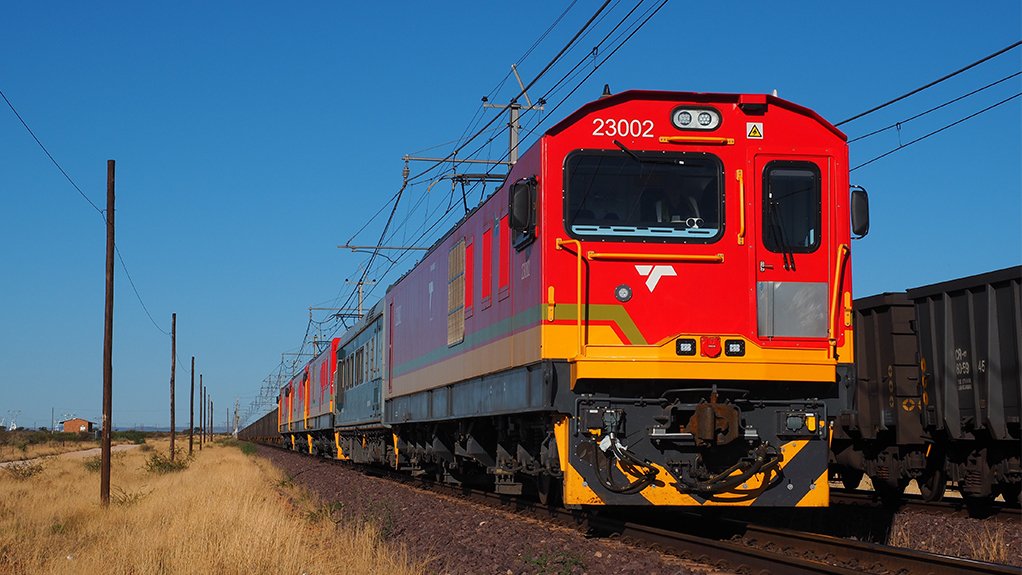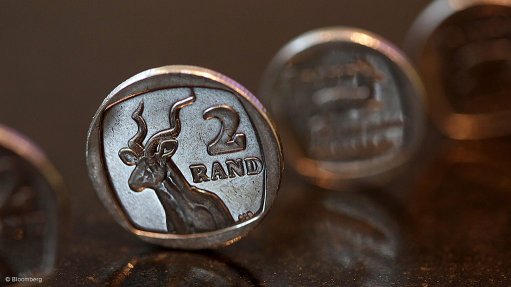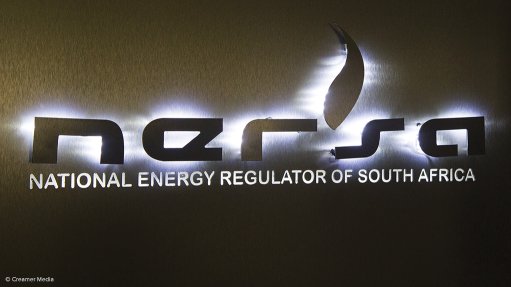Experts reflect on status of rail reform at SAHHA Conference
With Transnet’s export coal and iron-ore volume performance having reached multidecade lows in recent years and mining companies not weathering low commodity cycles sufficiently, the focus of this year’s South African Heavy Haul Association (SAHHA) Conference is on reforms having been made to improve logistics efficiency in the country.
South Africa lost out on a combined R140-billion in export revenue from coal and iron-ore in 2021, 2022 and 2023 owing to lower export volumes as a result of rail inefficiencies. The losses would have been more had it not been for increased trucking in the coal sector.
Bulk commodities – coal, iron-ore, manganese and chrome – comprise 48.5% of total mining production in South Africa and alone contribute 3% to South Africa’s GDP.
Volumes transported on the rail network as a whole declined from 226-million tonnes in 2017/18 to just 149-million tonnes in 2022/23, while more than a quarter of long-distance freight traffic has shifted to road in the past five years.
Presidency project management office head Rudi Dicks explained that a combination of Transnet’s financial problems and structural challenges had caused a significant decline in rail capacity and efficiency. He estimated that South Africa forfeited about $26-billion in iron-ore and coal export trade since 2010 as a direct impact of underperformance in the rail network.
One of government’s most recent reforms has been that of the Freight Logistics Roadmap, which outlines a clear path to address the immediate challenges of the sector in the short term, and reform of the logistics system in the long term. Unlike many other pieces of policy, the roadmap includes a detailed, coordinated and sequenced set of actions to translate policy into outcomes.
Dicks said government’s end-goal was to increase the market share of freight rail and move more commodities, including those of agriculture, from road onto rail.
With more private participation in the rail industry to come to the fore, Dicks highlighted the importance of creating a level playing field, including through establishing Transnet Freight Rail and Transnet National Ports Authority as independent subsidiaries under Transnet with their own clear governance frameworks.
Dicks also emphasised the importance of developing a network statement to set out clear rules, deadlines, procedures and criteria for charging and capacity allocation, as well as the establishment of the Transport Economic Regulator.
A Bill to this effect is currently in the legislative process, with a regulator anticipated to oversee implementation of an independently managed access pricing regime for rail.
MINING PERSPECTIVE
Minerals Council South Africa CEO Mzila Mthenjane delivered the keynote address at the conference, stating that, for the mining industry to ultimately grow and create more jobs, reforms on energy, logistics, crime, water and municipalities were all crucial.
The reforms served to provide more infrastructure and instil more confidence for investment. He pointed out that the cost of business was simply becoming too high for mining companies to continue to effectively weather low commodity cycles and grow their operations.
Mthenjane said mining companies could not continue depending on commodity price booms to ensure healthy balance sheets for growth and that a more sustainable environment and cost of business was necessary.
He illustrated a virtuous mining fixed investment cycle would involve State-owned entities (SOEs) ramping up investment, which would ensure improved operational performance leading to improved mining confidence and therefore more spend on expansion – in turn, this would lead to more demand for power and rail slots, which boded well for the SOEs.
Mthenjane highlighted other challenges as being ineffective administration and implementation, mostly on the Department of Mineral Resources and Energy’s part in still having backlogs in approving mining right applications and holding back about R30-billion worth of investment as a result.
He also spoke about security of tenure issues, explaining that there had been abuses involving competing rights and legal costs as a result of loopholes in the Mineral and Petroleum Resources Development Act (MPRDA), which was evidence of the need for government to make more merit-based appointments across national, provincial and local government levels.
He hoped that, following government’s MPRDA Review Summit in 2023, positive changes to clarify vague provisions would ensue.
Ultimately, Mthenjane was positive about the domestic outlook for mining as the Government of National Unity looked set to drive reform momentum, loadshedding remained suspended for four months and counting, the mining cadastre made progress and the prospect of private sector rail access increased.
Meanwhile, Transnet chairperson Andile Sangqu highlighted how the logistics industry was already experiencing “green shoots” following the implementation of Transnet’s recovery plan from October last year, including an additional ten-million tonnes of freight having been moved since then.
He added that 48 long-standing locomotives were due to come online in the next 18 months, which would further boost the entity’s capacity.
Sangqu assured that the rail industry would see more private-sector participation as more of government and Transnet’s reforms took shape.
FUTURE VIEW
SAHHA chairperson Brian Monakali said the organisation was changing its focus from optimising the rail component of heavy haul operations to the entire process from pit-to-port.
He stressed the importance of developing leadership in the rail industry to ensure stability and consistency, as well as continuing to implement best practice maintenance and operational standards.
SAHHA works with various partners to find solutions to chronic failures on the heavy haul system and improve bulk materials handling, including loading, offloading and ship loading.
Monakali said the work of organisations such as SAHHA was becoming increasingly important to inform the strategic direction of logistics in the country and region, as well as to spark more research and capacity development in the logistics industry, to which the organisation was catering.
Article Enquiry
Email Article
Save Article
Feedback
To advertise email advertising@creamermedia.co.za or click here
Comments
Press Office
Announcements
What's On
Subscribe to improve your user experience...
Option 1 (equivalent of R125 a month):
Receive a weekly copy of Creamer Media's Engineering News & Mining Weekly magazine
(print copy for those in South Africa and e-magazine for those outside of South Africa)
Receive daily email newsletters
Access to full search results
Access archive of magazine back copies
Access to Projects in Progress
Access to ONE Research Report of your choice in PDF format
Option 2 (equivalent of R375 a month):
All benefits from Option 1
PLUS
Access to Creamer Media's Research Channel Africa for ALL Research Reports, in PDF format, on various industrial and mining sectors
including Electricity; Water; Energy Transition; Hydrogen; Roads, Rail and Ports; Coal; Gold; Platinum; Battery Metals; etc.
Already a subscriber?
Forgotten your password?
Receive weekly copy of Creamer Media's Engineering News & Mining Weekly magazine (print copy for those in South Africa and e-magazine for those outside of South Africa)
➕
Recieve daily email newsletters
➕
Access to full search results
➕
Access archive of magazine back copies
➕
Access to Projects in Progress
➕
Access to ONE Research Report of your choice in PDF format
RESEARCH CHANNEL AFRICA
R4500 (equivalent of R375 a month)
SUBSCRIBEAll benefits from Option 1
➕
Access to Creamer Media's Research Channel Africa for ALL Research Reports on various industrial and mining sectors, in PDF format, including on:
Electricity
➕
Water
➕
Energy Transition
➕
Hydrogen
➕
Roads, Rail and Ports
➕
Coal
➕
Gold
➕
Platinum
➕
Battery Metals
➕
etc.
Receive all benefits from Option 1 or Option 2 delivered to numerous people at your company
➕
Multiple User names and Passwords for simultaneous log-ins
➕
Intranet integration access to all in your organisation





















